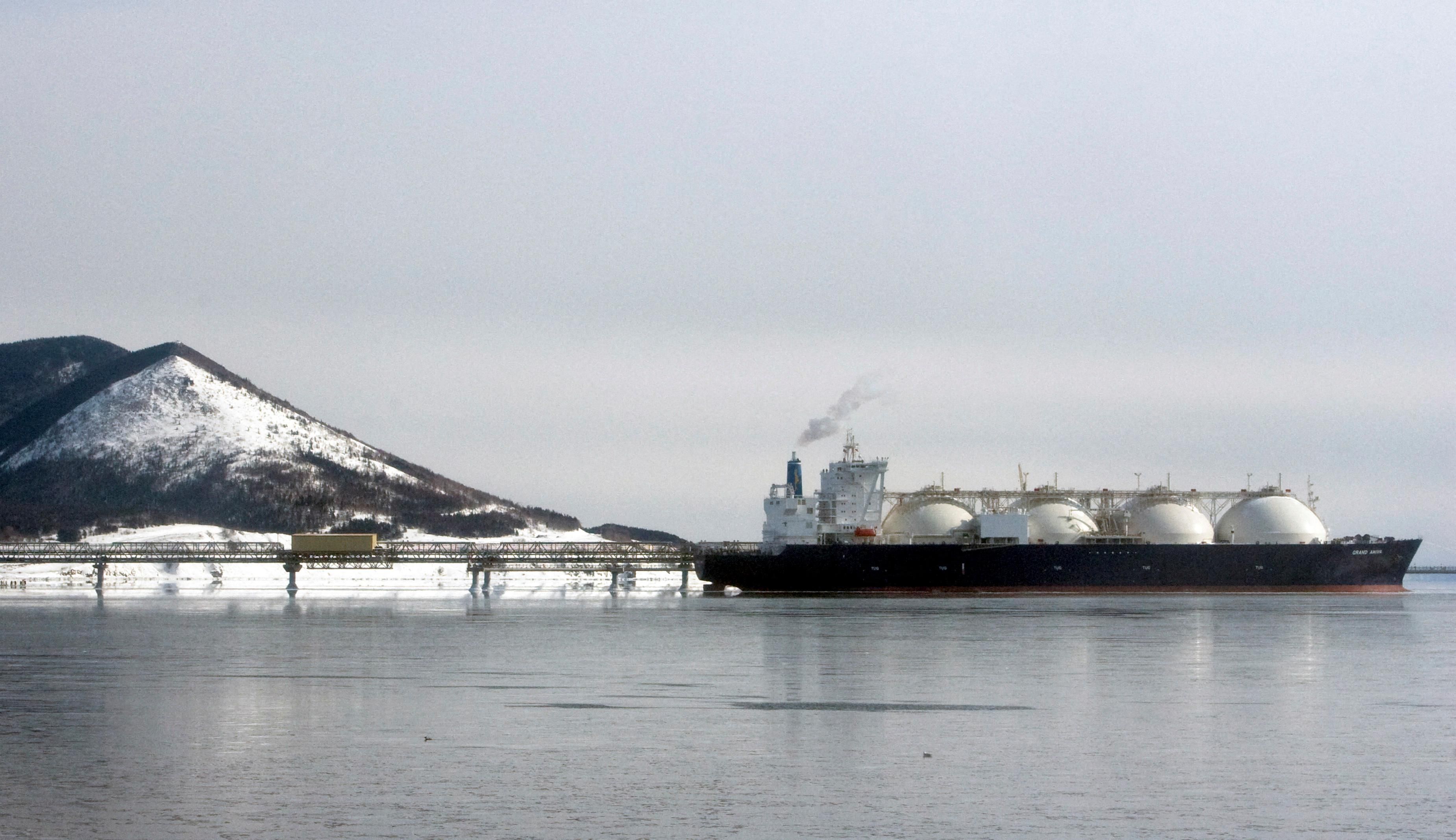Since Russia invaded Ukraine in February, a lot of attention has focused on if, when, and how Europe might wean itself off of Russian energy flows to cripple Vladimir Putin’s war machine.
But there’s another major world economy that borders Russia, depends on Moscow to keep the power running, and faces tough choices because of its close ties to the US.
So far, Japan has largely moved in tandem with its US and European partners in supporting Kyiv and punishing Moscow. Tokyo has sent aid and military equipment to Ukraine, joined US and EU sanctions on major Russian banks, and outlawed exports of Japanese luxury items, cars, and high technology to the Russian market.
But sanctioning the Russian energy sector has been a more delicate issue. Ahead of an EU-Japan summit in Tokyo on Thursday, Japan pledged this week to phase out Russian oil “in principle” but offered no clear timetable.
And when it comes to Japanese investment in Russian energy projects, Tokyo has an even clearer answer about whether it will pull out: “no way.”
For Japan, the realities of being an energy-poor island nation bite. “The Japanese will frequently tell you: ‘our only natural resources are our people,’” says David Boling, a Japan expert at Eurasia Group.
The country buys almost 100% of its oil, gas, and coal from abroad, according to the IEA, making it more dependent on energy imports than any other major economy.
“Energy is a matter of life and death,” a top Japanese official recently told the Financial Times.
Although much of those resources come from the Middle East and Australia, Russia still plays an important role, supplying 11% of Japan’s coal, 8% of its natural gas, and 5% of its crude oil.
Complicating matters further, since the Fukushima disaster of 2011, Japan has largely shuttered its nuclear power stations. Even as public opinion slowly warms again to nuclear energy, high regulatory hurdles prevent a swift reopening of those plants.
And while Tokyo seems willing to drop Russian oil imports gradually, there is a bright red line around Japan’s own investment in Russian energy projects. Nowhere is that clearer than 30 miles off the northernmost coast of Japan, on the Russian island of Sakhalin.
For nearly 30 years, Japanese firms have held stakes in two major Russian oil and natural gas projects there. Investment in the Russian energy sector was seen as a way to reduce Japan's heavy reliance on Middle Eastern exporters -- which still supply close to 90% of Japan's oil -- and to further diversify its LNG imports.
Even when the Russian government strong-armed its way into Sakhalin 15 years ago, Japan stayed put. When Sakhalin-2 finally began producing LNG for Japan in 2009, then-Prime Minister Taro Aso described it as a “dream.”
There’s an economic reason that Japanese firms aren’t budging from Russia even as US and European majors head for the exit. At Sakhalin-2, Japan gets virtually all of its liquefied natural gas at agreed-upon long-term prices. Ditching the project would force Tokyo to buy that gas ad hoc on the global spot market, where prices have recently hit record highs.
But geopolitics are in the mix too. As Japan sees it, leaving Sakhalin would simply open the way for other, less scrupulous investors to move in while inflicting little economic pain on Russia. China is reportedly already eyeing the Sakhalin stake that the UK-based energy giant Shell announced it would sell in February.
In fact, far from slashing investment in Russia, Japanese firms are doubling down. The energy giant Mitsui, a Sakhalin investor, said last week it would press ahead with a separate $21 billion Russian LNG project in the Arctic that is scheduled to start producing by next year.
So far, polls show a strong majority of Japanese support Prime Minister Fumio Kishida’s handling of the Ukraine crisis. And even as a majority of the population worries about rising prices for food and energy — which the war is making worse — roughly 70% of those polled in mid-April said they approve of sanctions against Russia.
A separate study showed that close to 80% favor weaning Japan off Russian energy even if it causes prices to rise. It remains to be seen whether Tokyo will eventually move in that direction or continue to play things safe. With upper house elections approaching in July, Kishida may be wary of stoking inflation any further.
And to be fair, Japan’s swift reaction to Russia’s invasion contrasts with the more cautious approach Tokyo has taken toward US adversaries in the past.
For years, Tokyo maintained energy ties with Iran even as Washington sought to pressure Tehran over its nuclear program. And when Russia first swiped a chunk of Ukraine in 2014, the response from then-PM Shinzo Abe — who met with Putin more than 25 times during his time in power — was muted.
“The Japanese fear that this is the first episode in a TV series,” says Boling, “and that the second episode is going to be China.”
